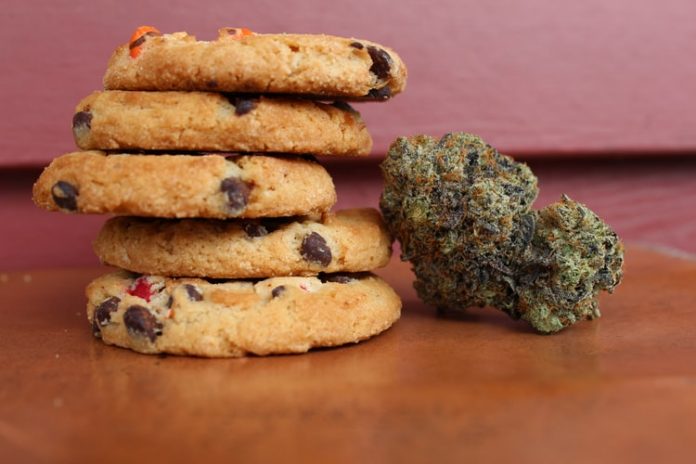U.S, February 03, 2020 (ANALYTICALCANNABIS) We often hear that cannabis is a gateway drug. And in the case of edibles, there’s a little truth to that. Those gates open to reveal things like cheesy Doritos, chewy candies, and chocolate-dipped pretzels. Cannabis’ ability to induce a serious case of the munchies is what exactly has the research community eager to figure out why they open in the first place.
Aside from relaxation, euphoria, and total bliss, the increase in appetite is probably cannabis’ best-known effects. But while known and joked about for decades, the munchies’ causes and mechanisms remained largely unknown. But new research is starting to change that. And aside from solving a long-standing curiosity, this new knowledge could help provide more options for people struggling with appetite loss and other illness-induced eating disorders.
But before getting into all of that, we first need to understand what it is about cannabis that so commonly influences appetite. In this article, we’ll look at the special relationship shared between cannabinoids and hunger to try and explain why it can make cannathusiasts transform from level-headed consumers into binge-eating gluttons.
What are the munchies?
Whether you eat or smoke it, some of the compounds found in cannabis really can stimulate your appetite. Those who have tried cannabis can attest, one of the after-effects is a sudden and strong desire for food, especially sweets. And if you decide to invite some friends over for a little “puff, puff, pass,” it’s considered a sin to not have your pantry stocked up with an assortment of sweet and savory delights.
With the rise of cannabis legalization and erosion of the stigma tied to the drug, understanding the munchies’ effect has become even more important. Now, scientists and researchers are just beginning to understand the phenomenon, and it all seemingly comes down to the body’s endocannabinoid system.
In addition to coughing fits, a hit of marijuana triggers a bunch of cellular switches in the body, some of which are linked to sudden food cravings. One of the most important and long studied of these are the cannabinoid receptors CB1 and CB2, which are mainly found along the nervous and immune systems. These receptors play a key role in human metabolism, nutrient transport, and, you guessed it, appetite. But just how do these findings correlate with cannabis’ most referenced side effect?
What are the munchies caused by?
Appetite receptors in the body usually shut off when a person feels full. However, cannabinoids in cannabis, like THC, are still able to induce the munchies through their interaction with CB1 receptors. These receptors can affect the olfactory cortex, a region of the brain that receives direct input from smell senses. One 2014 study showed that through their interaction with THC, these CB1 receptors were essentially ‘used’ by the cannabinoid to manipulate the olfactory system and produce chemicals that temporarily increase the sense of smell. And, boom, your appetite gets ramped up. But that’s not all.
Thanks to a 2015 study, we now know that THC can ‘trick’ the brain into making it think the body needs food by activating pro-opiomelanocortin (POMC) neurons, which signal fullness. POMC neurons fail to turn off this hunger signal while under the influence of THC. In fact, they do the exact opposite and actually go into overdrive, sending a large amount of these signals directly to the brain.
Increased appetites and cannabis
Current evidence suggests that regular consumption of cannabis might be useful for increasing body weight in those who suffer from anorexia nervosa, cancer-related weight loss, and HIV wasting. According to a 2011 study published in the Biological Psychiatry Journal, eating disorders such as anorexia may even be linked to a deficient endocannabinoid system, and could possibly be treated by introducing cannabinoids into the body.
But, of course, an induced appetite is not necessarily a treatment, and should still be considered as a side effect. So the advice of your doctor should always be sought before turning to an appetite-boosting cannabis strain.
Final thoughts
In the cannabis community, the munchies are something cannathusiasts often laugh about. But with so much more left to discover about cannabis, along the way, researchers are bound to find out a lot more about the plant’s effects on appetite.







